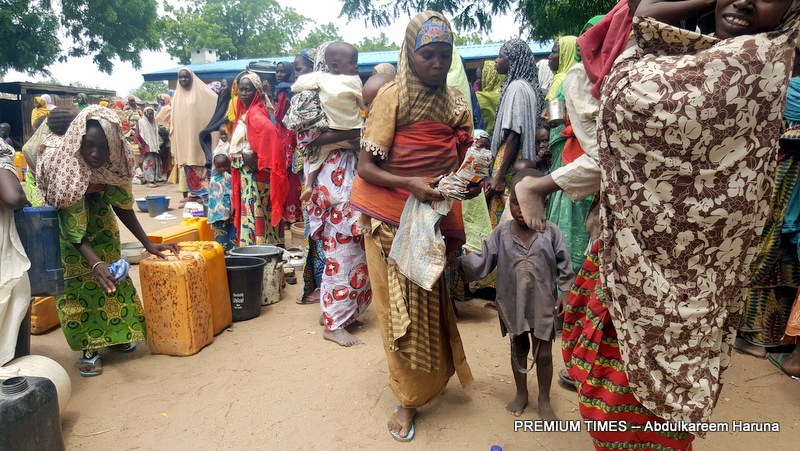
More than $672 million (N211.6 billion) to be spread over three years was on Friday pledged by 14 countries at the Humanitarian Conference on Nigeria and the Lake Chad region in Oslo, Norway.
The News Agency of Nigeria reports that the conference, co-hosted by Nigeria, Norway and Germany had sought for $1 billion emergency funding to prevent famine in the Lake Chad region and north-east Nigeria.
Nigeria’s Foreign Affairs Minister, Geoffrey Onyeama, said this in a statement issued by Sarah Sanda, the Special Assistant, Media to the minister in Abuja.
Mr. Onyeama expressed Nigeria’s gratitude to the donors, adding that no donation would be taken for granted.
He said the sheer magnitude of the humanitarian crisis which cuts across Nigeria and countries contiguous to the Lake Chad area was one of the largest and gravest humanitarian crises in the world.
The minister said the gesture came at a time Nigeria was experiencing fiscal constraints as the economy had plunged into a recession in the midst of costly military operation against Boko Haram.
“In Nigeria alone, 26 million people have been affected by the Boko Haram insurgency and 10.7 million people have been identified by the 2017 Humanitarian Response Plan (HRP) as needing life-saving assistance.
“The root causes of the crises including poverty, underdevelopment and high population pressure must be addressed,” he said.
The UN Emergency Relief Coordinator, Stephen O’Brien, in a related report said the summit’s host country, Norway, led efforts by pledging $192 million of the $672 million promised by international donors.
Mr. O’Brien said further contributions were still expected later in the year from the UK and the U.S, while two other unnamed countries had indicated to pledge substantial contributions.
The Deputy Director of USAID’s Office of Food for Peace Programme, Matthew Nims, at the conference said the threat of famine in Nigeria was greater than ever.
“We could see this and I think we the governments in the region, those around the table here need to accept that there was a failure on all our parts to see where we have come to.
“All of us know that it’s also not the only country.
“If you look at 2017, it may be the great year of transition on many levels, but we don’t want it to be the year when famine becomes a more commonplace word.
“We are in unprecedented times of food insecurity,” he said.
The report also quoted Governor Kashim Shettima of Borno as saying “some rehabilitation of former fighters had taken place, but insisted the group’s make-up had to be seen as a triangle”.
“At one end, there are the ideologically driven Boko Haram, who will resist any reintegration.
“Then you have the forcefully conscripted Boko Haram, then there are the fortune seekers who join for economic reasons,” he said.
(NAN)


Be the first to comment